Chronicle of a Summer Blu-ray Movie
HomeChronicle of a Summer Blu-ray Movie 
Chronique d'un étéCriterion | 1961 | 91 min | Not rated | Feb 26, 2013
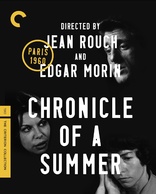
Price
List price:Amazon: $32.28 (Save 19%)
Third party: $32.28 (Save 19%)
Only 7 left in stock (more on the way).
Movie rating
7.3 | / 10 |
Blu-ray rating
| Users | 0.0 | |
| Reviewer | 4.5 | |
| Overall | 4.5 |
Overview
Chronicle of a Summer (1961)
Filmmaker-anthropologist Jean Rouch and sociologist Edgar Morin interview a group of Paris residents in the summer of 1960, revealing the hopes and dreams of a wide array of people.
Starring: Jean Rouch, Marceline Loridan-Ivens, Régis Debray, Marilů ParoliniDirector: Jean Rouch, Edgar Morin
| Foreign | Uncertain |
| Documentary | Uncertain |
Specifications
Video
Video codec: MPEG-4 AVC
Video resolution: 1080p
Aspect ratio: 1.37:1
Original aspect ratio: 1.37:1
Audio
French: LPCM Mono (48kHz, 24-bit)
Subtitles
English
Discs
50GB Blu-ray Disc
Single disc (1 BD)
Playback
Region A (locked)
Review
Rating summary
| Movie | 4.5 | |
| Video | 4.0 | |
| Audio | 4.5 | |
| Extras | 4.5 | |
| Overall | 4.5 |
Chronicle of a Summer Blu-ray Movie Review
Reviewed by Dr. Svet Atanasov March 7, 2013Edgar Morin and Jean Rouch's "Chronique d'un été" a.k.a. "Chronicle of a Summer" (1961) arrives on Blu-ray courtesy of Criterion. The supplemental features on the disc include Florence Dauman's documentary film "Un été +50" (2011); episode of the French television program Rhone-Alpes actualites, featuring an interview with director Jean Rouch; archival interview with Marceline Loridan; and an exclusive new video interview with anthropology professor Faye Ginsburg; The release also arrives with an illustrated booklet featuring an essay by Sam Di Iorio. In French, with optional English subtitles for the main feature. Region-A "locked".
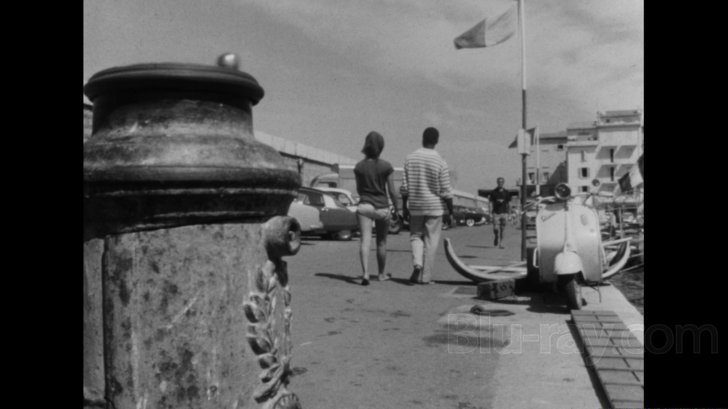
On the streets of Saint-Tropez
Edgar Morin and Jean Rouch’s film begins with a simple question: Are you happy? On the streets of Paris, strangers look straight into the camera, confused, surprised, unsure why they are being filmed. A woman attempts to answer the question but becomes embarrassed and quickly disappears into the crowd.
The question is only an invitation for people to open up in front of the camera. Morin and Rouch pay attention to the answers, but what they are after is the truth - capturing on film real emotions, real feelings, the type of reactions not found in mainstream films.
As some of the interviewees become comfortable with the camera’s presence their answers begin to evolve, their body language changes. Morin and Rouch do not doubt their sincerity but become concerned that authenticity, the most important aspect of their experiment, could be compromised.
The film captures some remarkable character transformations. A young woman from Italy has moved to Paris to be free, but has discovered that her life has becomes a series of controlled events. With tears in her eyes, she confesses that she has started drinking because she is no longer enthusiastic about life. She has also stopped dreaming. A few months later, however, she is interviewed again. This time her outlook on life is different.
In another segment, an African immigrant and a French girl wander around the small streets of Saint-Tropez. He finds it strange that women there are willing to show as much as they can to impress. Back home women would wear leaves to hide their sex, but the French colonialists would make fun of them.
A young Jewish woman isn't uncomfortable dating black men. But she confesses that she felt attracted to one that was a remarkable dancer. She attempts to explain exactly how she felt but quickly stops, feeling somewhat embarrassed, realizing that those around her might misinterpret her words. Later on, she mentions that during the war she spent time in a concentration camp.
And in another segment, a large group of young people discuss the war in Algeria. Some are convinced that France should protect its interests there; others support the Algerian Front de Liberation Nationale (FLN). They argue and then agree that they live in a difficult time, and that going forward their generation will face many important dilemmas.
Eventually, all of the interviewees are brought together. Like Morin and Rouch, some also wonder whether their behavior would have been different if they were unaware of the camera’s presence. They discuss their confessions, their attitude and perceptions of each other.
What makes this film special is its directness and rawness. It is a fascinating time capsule, the ultimate cinema verite project. What is captured by the camera cannot be replicated because it isn’t scripted, it isn’t prepared. It is the truth, a filmed version of life as lived by ordinary people.
Four different cinematographers assisted Morin and Rouch during the shooting of Chronicle of a Summer - Michel Brault (Mon Oncle Antoine), Roger Morilličre, Jean-Jacques Tarbes (La piscine, Borsalino), and the great Raoul Coutard (Breathless, Pierrot le fou).
Note: In 1961, Chronicle of a Summer won the International Critics Prize at the Cannes Film Festival.
Chronicle of a Summer Blu-ray Movie, Video Quality 
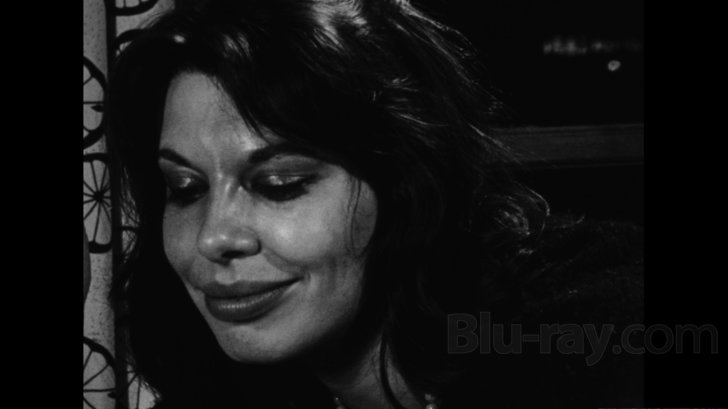
Presented in its original aspect ratio of 1.37:1, encoded with MPEG-4 AVC and granted a 1080p transfer, Edgar Morin and Jean Rouch's Chronicle of a Summer arrives on Blu-ray courtesy of Criterion.
The following text appears inside the booklet provided with Blu-ray release:
"The new digital master presented here was produced from the 2011 Cineteca di Bologna restoration, undertaken in collaboration with Argos Films. Performed under the supervision of cinematographer Michel Brault, the picture restoration was done at 2K resolution from a scan of a 35mm blow-up print created in 1961. Digital cleaning was done using Image Systems' Phoenix and Blackimagic Design's DaVinci Revival, and color correction was done using Assimilate's SCRATCH.
Transfer supervisor: Michel Brault.
Colorist: Giandomenico Zeppa/L'Immagine Ritrovata, Bologna, Italy."
Considering the fact the restoration of the film was based on a scan of a 35mm blow-up print, the final result is indeed very good. Most close-ups boast very pleasing depth (see screencapture #2), while outdoor sequences convey pleasing fluidity. Occasionally, clarity fluctuates, with different softer looking shots also appearing where light is restricted. Shadow definition suffers in select shots, but the effect also has a lot to do with the manner in which the filmmakers positioned the camera. Overall, however, Chronicle of a Summer has a very pleasing and consistent organic look. To be clear, there are no traces of excessive sharpening or degraining corrections. Also, aside from a few inherited frame skips, there are no serious stability issues to report in this review. Large debris, cuts, and damage marks have also been removed as best as possible. (Note: This is a Region-A "locked" Blu-ray disc. Therefore, you must have a native Region-A or Region-Free PS3 or SA in order to access its content).
Chronicle of a Summer Blu-ray Movie, Audio Quality 
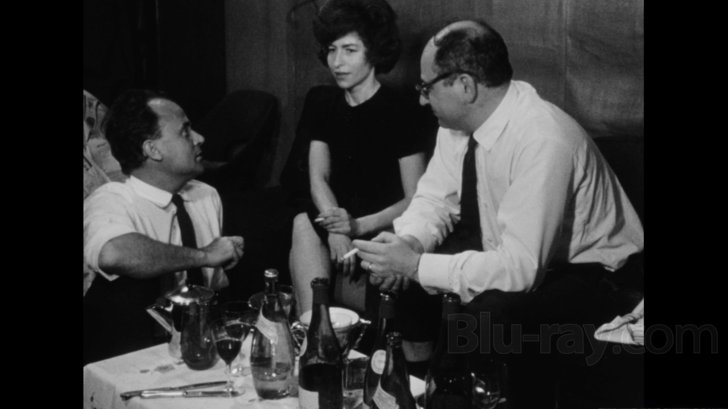
There is only one standard audio track on this Blu-ray disc: French LPCM 1.0. For the record, Criterion have provided optional English subtitles for the main feature.
Chronicle of a Summer is primarily a dialog-driven feature which has all of the basic audio limitations cinema verite style documentaries have. Unsurprisingly, dynamic movement is very limited. The dialog, however, is crisp, stable, and easy to follow. Occasionally, as the camera moves from one person to another (typically during close-ups), or from one location to another, some balance fluctuations are noticeable, but they are indeed inherited. The English translation is very good.
Chronicle of a Summer Blu-ray Movie, Special Features and Extras 
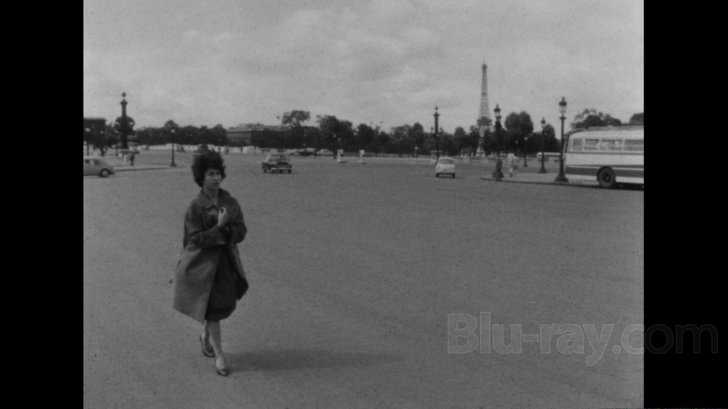
- Un ete + 50 - new documentary film from 2011, directed by Florence Dauman. The documentary is comprised of different outtakes and new interviews with codirector Edgar Morin, writer Raymond Bellour, and some of the interviewees from Chronicle of a Summer, including Marceline Loridan-Ivens, Nadine Ballot, and Régis Debray. The interviews were conducted in 2010. In French, with optional English subtitles. (75 min, 1080p).
- Jean Rouch - in this episode of the French television program Rhone-Alpes actualites, which was first broadcast on January 24, 1962, director Jean Rouch discusses Chronicle of a Summer and how it fits within the New Wave. In French, with optional English subtitles. (6 min, 1080p).
- Marceline Loridan - in this video interview, conducted by Francois Chalais and originally broadcast on the May 7, 1961, episode of the French television program Reflets de Cannes, Marceline Loridan, one of the interviewees in Chronicle of a Summer, recalls her deportation to Auschwitz and discusses her character in the film. In French, with optional English subtitles. (8 min, 1080p).
- Fayer Ginsburg - in this video interview, anthropology professor Faye Ginsburg discusses Chronicle of a Summer and Jean Rouch's legacy. The interview was conducted exclusively for Criterion in 2012. In English, not subtitled. (15 min, 1080p).
- Booklet - an illustrated booklet featuring Sam Di Iorio's essay "Truth and Consequences". (Mr. Iorio has written about Jean Rouch, Chris Marker, Jacques Rivette, Francois Truffaut, and Luc Moullet. He teaches French cinema and French literature in the Department of Romance Languages at Hunter College and at the Graduate Center of the City University of New York).
Chronicle of a Summer Blu-ray Movie, Overall Score and Recommendation 
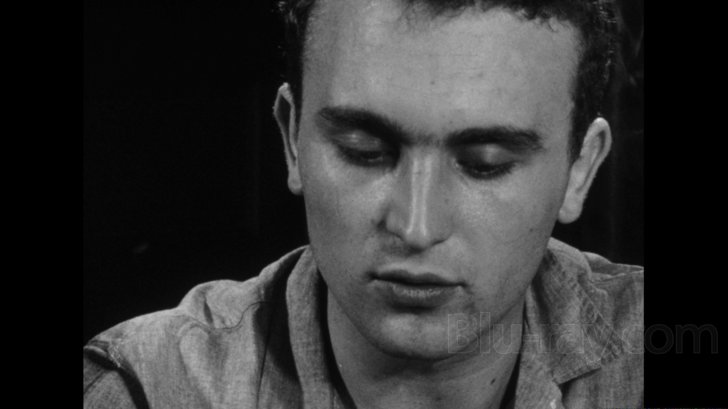
Filmmaker-anthropologist Jean Rouch and sociologist Edgar Morin's Chronicle of a Summer was an inspirational film for the New Wave directors. It is easy to see why. In a way, it is the ultimate cinema verite film, a trend-setter with remarkable depth and, perhaps rather surprisingly, style. Recently restored in 2K by Cineteca di Bologna, the film looks excellent on Blu-ray. Also included as a bonus on this release is Un ete + 50, an insightful new documentary film directed by Florence Dauman. HIGHLY RECOMMENDED.
Similar titles
Similar titles you might also like

Ingrid Bergman: In Her Own Words
Jag är Ingrid
2015

Faces Places
Visages villages
2017

The Beaches of Agnčs
Les plages d'Agnčs
2008

Trans-Europ Express
1967

The Salt of the Earth
Le Sel de la Terre
2014

Mon Oncle
My Uncle / French and English Versions
1958

The Gleaners and I
Les glaneurs et la glaneuse
2000

Henri-Georges Clouzot's Inferno
L'Enfer d'Henri-Georges Clouzot
2009

The Clowns
I clowns
1970

Ulysse
1982

Pina 3D
2011

Ŕ propos de Nice
1930

Soleil Ô
Oh, Sun
1967

Zama
2017

Touki Bouki
1973

Elles
2011

How Much Wood Would a Woodchuck Chuck
1976

Fĺrö Document
Fĺrödokument
1970

Fĺrö Document 1979
Fĺrödokument 1979
1979

Land of Silence and Darkness
Land des Schweigens und der Dunkelheit
1971